- Home
- Alex Berenson
The Silent Man Page 5
The Silent Man Read online
Page 5
“As you say.” Eager to get some sleep, Akilev’s men quickly unloaded the warhead crates. Meanwhile Grigory called to headquarters to tell Arkady that he and Tajid would be entering the warehouse. The steel door to the depot was three feet thick and could be unlocked only from headquarters—another security measure.
Arkady picked up after five rings. “Sleeping, Arkady?”
“Of course not. Everything on schedule?”
“Cold as your wife’s tits. Otherwise fine.”
“My wife has no tits,” Arkady said. “Let me know when you’ve checked the crates.”
Grigory hung up and turned to Akilev. “Ready to be done with this?”
“More than you know.”
From his pocket Grigory unfolded the sheet that held the codes to unlock the warhead crates. He punched a twenty-two-digit code into the numeric keypad attached to the lid of the crate nearest him. The magnetic lock popped open and Grigory opened the crate. The warhead sat naked and sterile, a cylinder about two feet long and eighteen inches in diameter, held firm by the rubberized interior of the cucumber crate. A string of numbers and Cyrillic letters, painted in red, gave the warhead’s serial number and its specifications. Halfway up the cylinder, a control panel stuck out, a simple metal plate with three switches side by side: Armed/Not Armed; Full Yield/Half Yield/Low Yield; Airburst/Groundburst. Beside the plate, the warhead’s locking mechanism, two eight-digit combination locks and a circular keyhole. Everything about the bomb was simple and low-tech, designed for reliability and ease of use by frontline soldiers who were likely to be under attack as they readied the warhead for launch.
“Hardly looks like it’s worth the trouble,” Grigory said to Akilev.
“Harmless as a Gypsy curse.”
Grigory closed the crate, which locked automatically. They moved on to the second crate, the third, and on down to the eighth. All the boxes were full.
“Well done, Major.”
“You thought I’d lost one?”
Grigory grabbed the file that held his inventory receipts from the Volga. He dated and signed the papers and handed them to Akilev. “Sign here,” he said.
“But aren’t we supposed to wait until the boxes are inside the warehouse?”
Third test. “If you like,” Grigory said. “But me and Tajid will need at least two hours to put the crates in their proper places. I thought you and your men might want some rest. Your choice.”
“Can we help you move the crates inside the depot?”
“I’m afraid not. Not that I don’t trust you—” Yes, Grigory thought. Turn back the question of trust on him.
“I understand. And you don’t mind if we leave. You’re certain.”
“Not a bit.”
“All right.” Akilev signed the papers and handed them back to Grigory. “Thanks for this. It’s been a very long day.” He whistled sharply to his men. They jumped into the Urals, which started with a heavy diesel thump. A minute later, the Tiger and the trucks had disappeared from the shed, leaving Grigory and his cousin alone.
Third test passed.
TO HIS SURPRISE, Grigory felt no excitement. He was relaxed, yet hyperaware of his surroundings. The grain of the pavement beneath his feet, the cold air against his face, the hum of the arc lights above his head—he saw and heard everything at once. This must be how God feels, he thought.
He called Arkady. “The crates checked out.”
“Has the convoy gone? On the monitors—”
“I told them they could. No need to make them wait for us.”
“But how will you—”
“We drove in.”
“Grigory, you know that’s not allowed—”
“So write me up. But meanwhile open the damn door, so we can put them away and be done.”
Arkady hung up. A few seconds later, the big steel door creaked open. Grigory and Tajid hefted two crates onto a forklift beside the door. Grigory drove into the cool depths of the warehouse, Tajid walking slowly behind him. Dropping the crates off took twenty minutes. When they were done, they loaded two more crates and repeated the procedure.
Fourth test. The third set of crates had come from the truck that had been nearest the Volga. Grigory waited until the cameras mounted on the rafters of the shed were facing away from him. The cameras made long, slow loops around the warehouse. For Grigory, who knew the pattern, they were easy to avoid.
Quickly, Grigory popped the trunk of the Volga and pulled out a pair of steel toolboxes, two feet by two feet by three feet, each half-filled with hard rubber balls the size of large marbles.
Toolboxes in hand, Grigory strode over to the crates and again keyed in the codes to unlock them. He reached into the first crate and grabbed for the cylinder. He had never actually touched a warhead before. To save weight and space, the damn thing didn’t have handles, and Grigory wasn’t sure how to lift it. He wedged his fingers underneath and began to pull. The warhead slipped back, nearly breaking his hands, and he fired curses at his cousin.
“Come on, you oaf. Help.”
On the second try they lifted the cylinder and transferred it into the toolbox, arranging the rubber balls so that it wouldn’t roll around. Quickly, they repeated the operation with the second crate.
Grigory snuck a look at the cameras on the ceiling. Still safe. He and Tajid slipped the toolboxes into the trunk, one over each wheel well. The lightbulb inside the trunk was dead, and the trunk was dirty with old newspapers and bottles of antifreeze and a spare tire and wrenches and a jack. Grigory covered the toolboxes with blankets and slammed down the lid. A thorough search would spot the boxes, but a flashlight quickly shined over the trunk wouldn’t. So he hoped. He closed the Volga lid and looked around. The cameras were still pointing away.
Fourth test passed.
WITH THE WARHEADS in his trunk, Grigory’s self-confidence began to flag. Until now he’d been playing a game, outsmarting Arkady and Boris Hiterov and Major Akilev, which wasn’t hard, since none of them knew they were playing at all. Bringing the Volga in was a technical infraction, nothing more.
Now, though, he’d crossed the border into something else. What if he’d been caught in some elaborate setup? What if the FSB had recruited Tajid to betray him? What if a force of agents waited outside the fence at this moment—
“Cousin,” Tajid said sharply, knocking Grigory from his reverie. “Let’s be done.”
So they went back into the warehouse, first with the two empty crates and then the final two. Grigory heart pounded in his chest. He was grateful for the cold air.
Then they were done. Grigory called Arkady, who answered on the second ring. This time he’d been awake, awaiting the call, Grigory figured. A bad sign.
“We’re done. Thank God. I think my balls have frozen.”
“Fine, then.” Arkady sounded annoyed. Grigory hung up and stepped away as the steel door slid closed. The shed was empty, the forklift beside the door. The place looked exactly as they had found it.
Grigory and Tajid slid into the Volga. Grigory hoped no one would notice that the car was sitting lower now. “Do you really believe we’ll get out of here, cousin?”
“Inshallah. It’s God’s will.”
“If you say so.” Grigory turned the key and the Volga started immediately.
BUT WHEN THEY ARRIVED at the guard hut, the fence was still closed.
“Damn Boris.” Grigory honked. The rear door of the hut opened and Hiterov stepped out, holding a flashlight. Its beam caught Grigory in the eyes. Grigory felt his bowels tighten.
Grigory rolled down his window. “What’s this, Boris?”
“I have to check the car. Arkady’s orders.”
Fifth test. This one unexpected. Grigory felt as he did playing chess when an opponent found a weakness and counterattacked, leaving him naked. Grigory opened the door, stepped out of the car. “Come on, Tajid. Into the cold while he finds the bombs we’ve stolen.” He hoped he had the right tone of sarcasm in his voice.
Grigory unlocked the trunk. Hiterov poked the beam of his light inside.
“What a mess. Don’t you ever clean this thing?”
“Only on nights I’m screwing your wife in the backseat.”
With his free hand, Hiterov poked ineffectually at the papers and antifreeze bottles. Grigory imagined how he would explain the warheads to the police and the FSB. An experiment, a test of the plant’s security. Maybe he’d tell the truth, try to trade his life for Yusuf’s, though he’d still wind up in a Siberian jail until he died.
Finally, Hiterov stood up. He hadn’t found them. He hadn’t noticed the toolboxes, hadn’t even moved the blankets.
“Inspection over. Tell Arkady I did as he asked.”
“Tell him yourself.” Grigory and Tajid slipped back into the Volga as Hiterov disappeared into the hut. The gate opened and Grigory put the Volga into gear and rolled out.
Fifth test passed. Game over. Checkmate.
The rest was simple. They checked in at headquarters and handed over the paperwork. Arkady complained about the way Grigory had broken the rules, and Grigory apologized dutifully. Four a.m. came, the end of Grigory’s shift. “See you, Tajid,” he said to his cousin, whose shift didn’t end for another hour. “Have a good weekend, Arkady.”
“You and your mother, too.”
Grigory walked out of headquarters and into the frigid night. The lights of the buildings around him glowed brightly, but nothing moved. In the distance, somewhere outside the gates of the plant, a truck rumbled. He walked toward the Volga. It wasn’t too late. He could still turn around, confess to Arkady, explain the theft as a crazy practical joke . . .
Too late, not too late, too late . . . Forget it. He’d won. Now he wanted his reward, whatever it was. He settled himself inside the Volga, slipped key into ignition.
“Inshallah,” he said. The foolishness that contented his cousin. God willing. What a strange thing to say. As if God had anything to do with this game they were playing. He pursed his lips, said it again. “Inshallah.” He drove off, toward the plant’s main gate, two stolen nuclear warheads in his trunk.
4
ZURICH
Cottage cheese.
Cottage cheese and melon. Cottage cheese and low-fat granola. Cottage cheese and an egg-white omelette . . . In the last three months, Pierre Kowalski had eaten cottage cheese all the ways it could be eaten. Now he was eating it again, spooning the rubbery white junk into his mouth. He choked it down with a glass of Evian, trying to pretend it had any taste at all.
“This is no way to live,” he grumbled in French across the table at Nadia Zorinova, his girlfriend, a twenty-two-year-old whose pert nose and ice-blue eyes were currently gracing the cover of Spanish Vogue.
“Now you know how we models feel.” Nadia smirked at him with her million-dollar lips. “Soon you’ll be ready to walk the runway.”
Nadia. This mansion on Lake Zurich, another in Monte Carlo. A yacht complete with its own helicopter pad. A billion dollars spread in banks around the world. The ear of defense ministers and presidents from Buenos Aires to Bangkok. Kowalski had everything he wanted. Everything but this . . . cottage cheese.
Kowalski never wanted to see cottage cheese again, not unless it was sitting next to a steak. A thick filet mignon, medium rare, in a pepper-corn sauce, accompanied by a bottle of burgundy. He picked up his plate, Wedgwood bone china, and spun it across the room like a $600 Frisbee. It crashed into the fireplace and exploded in a thousand shards, scattering cottage cheese and grapes across the floor.
Nadia’s smirk widened. “Pierre, you mustn’t keep destroying the china.”
“It’s replaceable.” Like you, Kowalski mentally added. Though Nadia had her charms. A few weeks earlier, she’d just missed being cast as an underwear model for Calvin Klein.
“Would you like something else?”
“Do you plan to cook it for me?”
THREE MONTHS BEFORE, Kowalski had brought his personal physician, Dr. Émile Breton, to his mansion for a physical. The appointment was not entirely routine. For weeks, he’d found himself unable to . . . perform, despite Nadia’s most tender ministrations. He’d never suffered that problem before. Quite the opposite, in fact. Years before, his endowment had earned him the nickname “Cinquante,” French for “fifty,” a reference not to the American rapper but to the .50-caliber sniper rifle, among the most powerful firearms ever made.
So Kowalski’s troubles left him puzzled. Perhaps his advancing age? Whatever the problem, he expected that Breton would take care of it with a prescription for Viagra or some similar elixir. The doctor had other ideas. He weighed Kowalski, drew blood, insisted that Kowalski come to his office for a treadmill stress test. And then he returned to Kowalski’s mansion to deliver the bad news in person.
“Pierre. You must change your diet, begin to exercise. You’ve gained ten kilos”—twenty-two pounds—“in two years.”
“You’ve been saying the same thing for as long as I’ve known you.” Kowalski smirked. “Would you like lunch, Doctor? It’s quail today, in a sauce of figs.”
“This isn’t a joke. Your cholesterol, your weight, your glucose. Disastrous, all of it.”
“Aren’t there those balloons?”
“Angioplasty. Yes, you may need that as well. But unless you take your diet more seriously, it’s only postponing the inevitable. Your arteries are nearly blocked. Why do you think you’re having such trouble with that delightful girl out there?”
Kowalski’s smile faded. “Now I see I have your attention,” the doctor said.
“What about the pills?”
“If you don’t lose at least twenty-five kilos”—almost sixty pounds—“Viagra will be useless.”
“You’re beginning to depress me.”
“Forty kilos would be even better. Tell your chef to throw away the quail, cook some vegetables.”
“Forty kilos? That’s nearly one-third of my weight.” Kowalski weighed 130 kilos—almost 290 pounds.
“I know.” He handed Kowalski a card: H. W. Rossi, spécialiste de diète. “If you’re serious about remaining alive, call him. I’ve seen him work miracles with men like you.”
INDEED, under the watchful eyes of Rossi, who seemed to survive solely on vegetables and an occasional piece of broiled trout, Kowalski had lost thirteen kilos in three months. Over the last few weeks, his libido had even started to return. Even so, the diet wore on him. Kowalski had always been a master at presenting a smooth face to the world. Now, though, he found himself irritable, prone to silly tricks like flinging plates across the room.
Yes, the diet was bothering him. The diet. And the knowledge that John Wells was still alive.
Kowalski was the world’s largest private arms dealer, a conduit for weapons from Russia, France, and the United States to armies all over the developing world. His father, Frederick, had gotten into the business in the late 1950s, recognizing that the newly liberated nations of Africa would need weapons and that Europe had millions of guns left over from World War II, moldering in warehouses.
The business took off in 1975, when Frederick brokered a deal between France and a young Iraqi dictator named Saddam Hussein. By then, Kowalski was at Oxford, studying political science. A few months before Kowalski graduated, Frederick asked when he would join the firm.
“Never,” Kowalski said.
Frederick looked at his son with the cool dark eyes that were a family trait.
Kowalski felt the need to explain, though he didn’t want to offend his father by questioning the morality of the business. “I want to make my own success.”
Frederick raised his hand. “Pierre. C’est bon. When you change your mind, you’ll find an open door.”
It will never happen, Kowalski thought. “Thank you, Papa,” he said aloud.
And those men—they came to his father for help. All over Africa, Latin America, the Middle East, Frederick Kowalski was treated like royalty. Pierre was disgusted, too, with the hypocrisy he saw every day in business. These companies, with their trade associations and their codes of ethics, as if they cared about anything but their profits. At least the Africans didn’t hide their greed. On his fifth anniversary, just as his boss at Lazard told him he was on track to become a partner, Pierre handed in his resignation.
Two days later, he was back in Zurich. When he appeared at his father’s office on Bahnhofstrasse, Frederick smiled.
“Come to join me?”
Pierre nodded, feeling slightly abashed. Until now he hadn’t considered the possibility that he might have waited too long, that his father might be angry at him, might even reject him.
“What took so long?” Frederick said.
The business became Kowalski père et fils a few years later, and Kowalski took over when Frederick suffered a stroke in 1999. Besides his daughter, Anna, a regular in the pages of the fashion magazines, Kowalski fils had two sons from his first and only marriage. So far, neither had shown interest in becoming part of the trade. But Kowalski expected they’d change their minds soon enough.

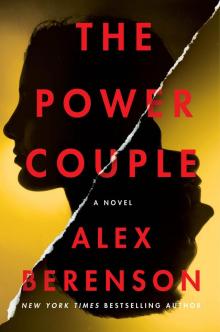 The Power Couple
The Power Couple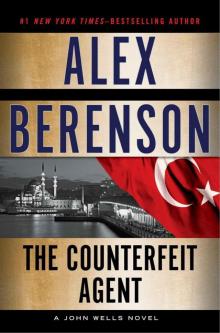 The Counterfeit Agent
The Counterfeit Agent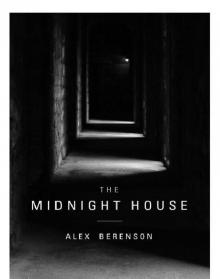 The Midnight House
The Midnight House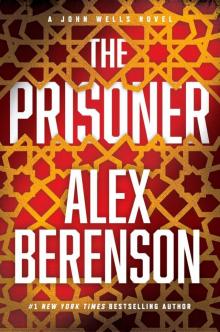 The Prisoner
The Prisoner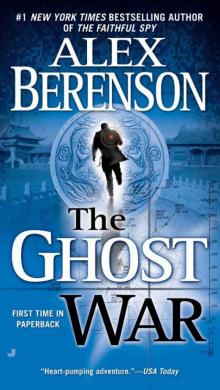 The Ghost War
The Ghost War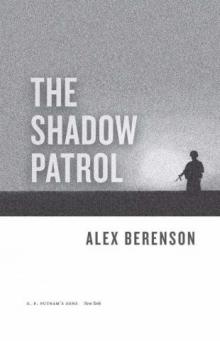 The Shadow Patrol jw-6
The Shadow Patrol jw-6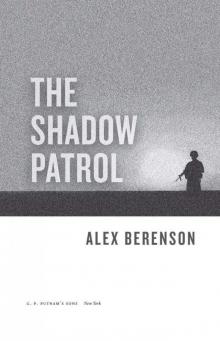 The Shadow Patrol
The Shadow Patrol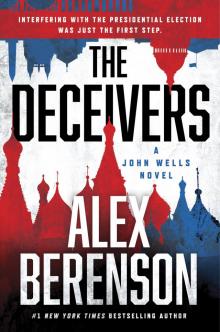 The Deceivers
The Deceivers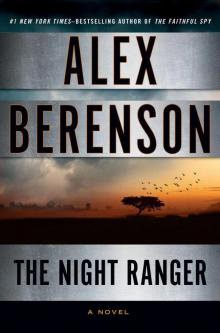 The Night Ranger jw-7
The Night Ranger jw-7 The Faithful Spy
The Faithful Spy The Prince of Beers (Kindle Single)
The Prince of Beers (Kindle Single)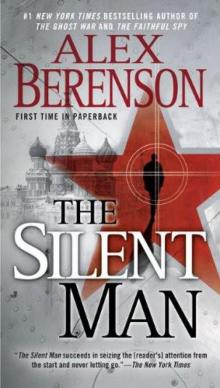 The Silent Man jw-3
The Silent Man jw-3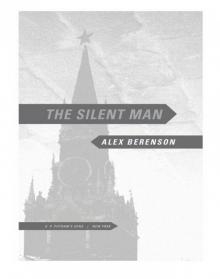 The Silent Man
The Silent Man The Wolves
The Wolves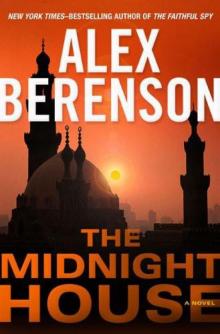 The Midnight House jw-4
The Midnight House jw-4 The Ghost Agent
The Ghost Agent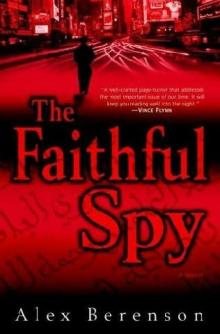 The Faithful Spy jw-1
The Faithful Spy jw-1 The Prince of Beers
The Prince of Beers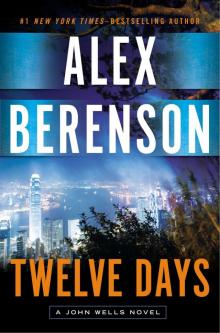 Twelve Days
Twelve Days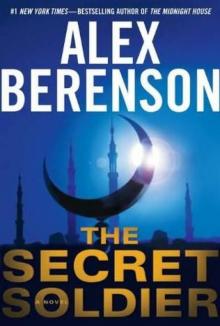 The Secret Soldier jw-5
The Secret Soldier jw-5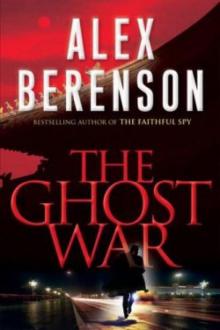 The Ghost War jw-2
The Ghost War jw-2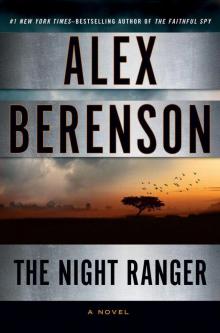 The Night Ranger
The Night Ranger